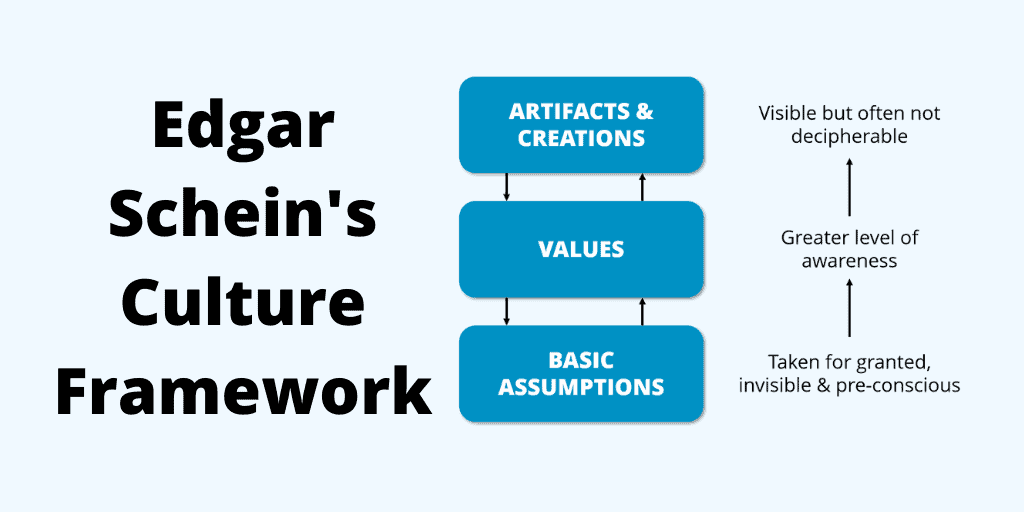Organizational Culutre Is a Term That Best Describes
A set of assumptions that point to the underlying essence of why members of the organization act as they do. Model of Organizational Culture Cultures can be categorized according to their emphasis on flexibility or control and whether their focus is internal or external to organization.

What Is Organizational Culture Definition And Examples
The shared values principles traditions and ways of doing things that influence the way organizational members act and that distinguish the organization from other organizations.

. Organizational culture is a system of shared assumptions values and beliefs that helps individuals understand which behaviors are and are not appropriate within an organization. Under this set of definitions organizational culture is a set of shared assumptions that guide what happens in organizations by defining appropriate behavior for various situations Ravasi Schultz 2006. It defines and creates a unique environment to work in.
An organizations culture consists of the values beliefs attitudes and behaviors that employees share and use on a daily basis in their work. Organizational Culture Definition and Characteristics Organizational culture includes an organizations expectations experiences philosophy as well as the values that guide. By Charles Rogel March 18 2014.
Organizational culture is the set of underlying beliefs values principles and ways of interacting within an organization. It shows up in company policies such as dress code and office hours. Organizational culture is the sum of values and rituals which serve as glue to integrate the members of the organization Richard Perrin.
Cultures can be a source of competitive advantage for organizations. Things like an organizations expectations vision philosophy image interactions within the office and outside of the office also define what the organizations culture is all about. Organizational culture affects the way people and groups interact with each other with clients and with stakeholders.
Organizational culture has been described as an organizations ideals vision and mission whereas climate is better defined as employees shared meaning related to the companys policies and procedures and rewardconsequence systems. Lets focus on one aspect of that for a moment -- values. Organizational culture is a system of shared assumptions values and beliefs which governs how people behave in organizations.
________ is the number of components in an organizations environment and the extent of the organizations knowledge. Essentially organizational culture is the values behaviors and shared vision that contribute to the environment of an organization. We also call it Corporate Culture.
It includes experiences ways of thinking beliefs and future expectations. Words to describe a positive company culture. Culture affects how people experience an organizationthat is what its like for a customer to buy from a company or a supplier to work with it.
Culture emerges with the shared experiences of a group and cant be controlled directly with policy. Organizational culture refers to a companys mission objectives expectations and values that guide its employees. Organizational Culture is a group of internal values and behaviors in an organization.
The personal beliefs values and opinions held by its employees. Its visible organizational structures processes and languages. Organizational culture refers to a companys mission objectives expectations and values that guide its employees.
Organizational culture is generally understood as all of a companys beliefs values and attitudes and how these influence the behaviour of its employees. Company culture is the set of traditions habits symbols norms expectations and values that are embraced by an organization. In this instance were using values as an umbrella term over the whole organization but also as a label to define the daily interactions between.
Thats because an organizations culture comprises an. Cultures can be a source of competitive advantage for organizations. And their focus When juxtaposing company emphasis with.
Organizational culture and climate may be erroneously used interchangeably. Culture is a carrier of meaning. A company culture that is productive creative and customer-pleasing can represent a significant asset.
This is important because all organizations can be categorized based on these two dimensions. One of the characteristics of a motivated workplace culture is an engaged workforce. The culture determines how employees describe where they work how they understand the business and how they see themselves as part of the organization.
Changing an organizations culture is one of the most difficult leadership challenges. Organizational culture is defined as the underlying beliefs assumptions values and ways of interacting that contribute to the unique social and psychological environment of an organization. It is also intuitive with repetitive habits and emotional responses.
Businesses with an organizational culture tend to be more successful than less structured companies because they have systems in place that promote employee performance productivity and engagement. The profits that it plans to make in the next three quarters. A motivated culture is one where the organization focuses on energizing and inspiring its employees to achieve performance and business goals to support the growth of the company.
Some of the words most commonly used to describe a company culture in an attractive way. These shared values have a strong influence on the people in the. Organizational culture refers to ________.
Businesses with an organizational culture tend to be more successful than less structured companies because they have systems in place that promote employee.

Organizational Culture Definition Characteristics Roles Types

Edgar Schein Organizational Culture Artifacts Values Assumptions

Edgar Schein Organizational Culture Artifacts Values Assumptions
No comments for "Organizational Culutre Is a Term That Best Describes"
Post a Comment